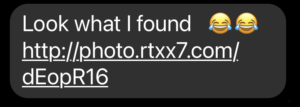
By Colin Tansley
Colin Tansley published his policing memoir Mastering the Wolf in 2022. His day job is as a cyber security specialist. Here, Colin shares his thoughts on cyber security for authors…
I’m going to write this from the perspective of an author and with knowledge of my own personal set-up. Now, it may not be the same for everyone, but for most of us in the small business arena, I am taking an informed guess that what I will share will be common.
I am going to pose you with a few questions first.
- Do you hold any customer data?
- Do you have social media accounts?
- Do you have your own website?
Even if you only have one of the above, then you and the data you hold are at risk, unless you take precautions to protect it. Despite what a slick cyber security salesperson may tell you, there is not one single solution that will stop you from suffering a data breach. What you can do is lower the risks, significantly.
Customer data – when someone orders their book from you, invariably they will provide their name, email, and home address, maybe even details of the payment provider. What are you doing with it once the transaction is complete?
Ask yourself, do you need to keep it? If a cybercriminal gets into your systems and steals their data, you have suffered a data breach and will have certain obligations. Do you need all that to deal with, or would you prefer to be writing your next book?
Tip – Weed that customer data today and delete what you do not need.
Social media accounts – The prime hunting ground for those with malicious intent. The screenshot below is a typical phishing scam that gets circulated, this one from Facebook messenger.

The intention is to create curiosity, get you to click, and then, lo and behold, you have introduced malicious software into your account. Your social media profile gets taken over by the criminal and starts getting in touch with your client base. You definitely don’t need that to disrupt your writing!
Tip – Be careful what you click! If you are not sure, leave it alone…
Your website – It may be the case that you manage your own website, or you outsource it to a friend or a company. Make sure the admin password is ‘long and strong’ and do not share it with anyone else. This password is the equivalent of the master key for your digital front door. Also, ensure that security updates are applied promptly (things like plugins too for WordPress). If you don’t attend to them, the vulnerabilities are not addressed, and you are leaving the windows open for digital burglars.
Tip – If you are not sure, get someone ‘in the know’ to help you.
Finally, one of the best ways to protect all your online accounts is two-factor authentication. This is like a double lock on your digital front door. The way it works is that you enter your credentials into say, your Facebook account, and the system will then require a code from you, normally generated via an authenticator app on your smartphone. Something that is only in your possession (or should be). No code, no entry; it’s that simple, and a great way of keeping scammers, fraudsters, and thieves out of your accounts plus that new book you are working on.
You will find a FREE business cyber security awareness course on my products page here – https://compliance.intelect-group.com/
Let me know if you find it helpful!

